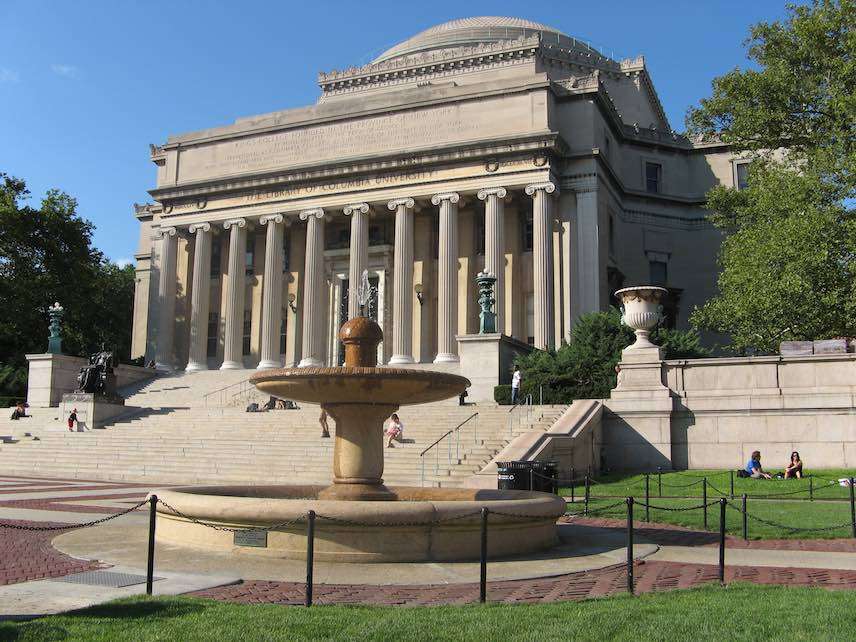Columbia Law Professor: Letting a Right-Wing Activist Speak Is 'An Act of Violence'
Angry protesters shut down Tommy Robinson event.

Kayum Ahmed, an adjunct faculty member at Columbia's Law School, helped students prevent a controversial right-wing speaker from giving a talk (via Skype) on campus. He also preemptively filed a discrimination complaint because the speech in question "constitutes an act of violence" and "is a form of harassment and discrimination."
Ahmed claimed in the Columbia Daily Spectator that he is under investigation for his role in disrupting the College Republicans' event on October 10, which involved a presentation by Tommy Robinson. Robinson is a far-right European anti-Islamic activist who is legally barred from entering the U.S., which is why he was scheduled to speak via Skype.
The speech didn't happen: Protesters shouted him down, making it impossible for the Columbia audience to hear him, according to Campus Reform's Toni Airaksinen. Ahmed has defended his actions on the grounds that allowing someone like Robinson to speak is dangerous, and that hate speech does not deserve robust First Amendment protection:
As one of the protesters who stood with a placard in the front of the room where Robinson's image was projected onto a screen, I was not only exercising my right to free speech, I was defending my right to exist and to be recognized as human. Prior to Robinson's talk, I filed a formal complaint of discrimination and harassment with Columbia University's Office of Equal Opportunity and Affirmative Action, arguing that "Mr. Robinson's invitation to speak on campus not only violates my dignity but constitutes an act of violence, [and] is a form of harassment and discrimination. While I recognize Mr. Robinson's right to free speech, his presence on campus (albeit via Skype) is a threat to my safety and security since his speech may encourage fellow students to act in a violent way toward me."
During my engagement with the EOAA, it became apparent that Columbia adopts a narrow conception of free speech that ignores the violent physicality of hate speech: Lips move, sound travels, and words penetrate. And sometimes, these words constitute an act of violence or result in physical forms of violence. However, it is the University's position that hate speech should be countered with equally opposing views so that the student community can decide for themselves what they want to believe. While this neutral approach may seem reasonable, the University ignores the fact that not all voices have equal power and that opposing voices are not equally heard. It assumes that students presented with two perspectives will choose the most well-reasoned argument, but disregards the climate of hatred and victimization within which these perspectives are offered.
I'm not sure who the complaint is directed against (the College Republicans? the university?); Ahmed did not immediately respond to a request for clarification.
Robinson is indeed a hateful and loathsome person. If I were a member of the College Republicans, I would have implored my friends not to give him a platform. I support students and professors who protested both the decision to invite Robinson, and Robinson himself.
But words are not violence, and the hatefulness of Robinson's perspective is not grounds for cancelling his speech or shouting him down. Ahmed's argument is paternalistic: He doesn't trust students to "choose the most well-reasoned argument" when presented with a hateful perspective, and so he wants to strip them of their right to listen. This is illiberal thinking, and a betrayal of the values for which Columbia stands, and a concerning position for a member of the law faculty to take.
For more on campus leftists' self-defeating war on hate speech, read Michael Schill in The New York Times.


Show Comments (125)